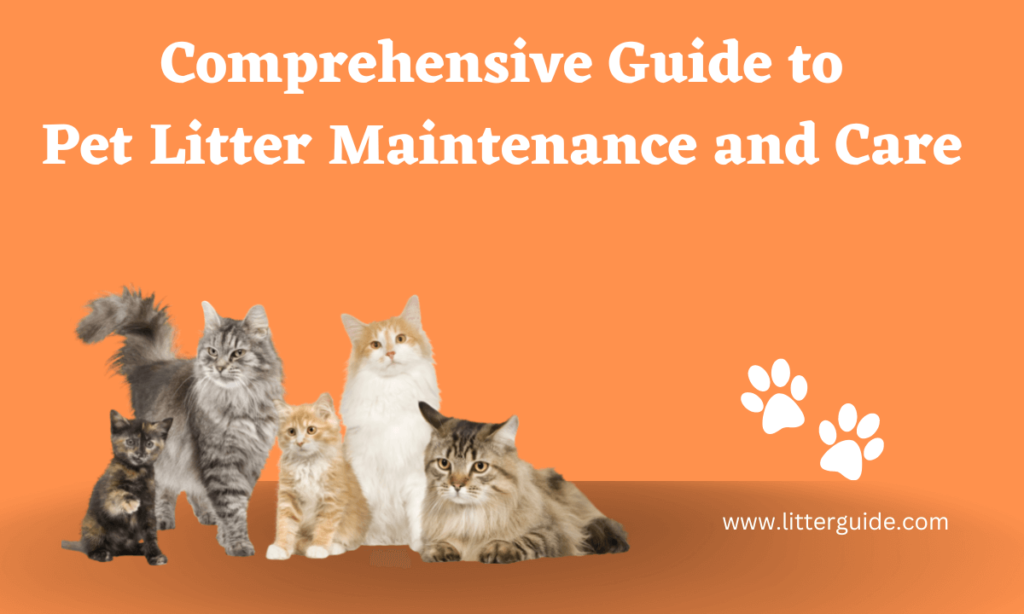Introduction:
Cat litter is a common household item for cat owners. It is used to absorb the urine and feces of cats, helping to keep the litter box clean and odor-free. As a cat owner, you may have stocked up on kitty litter in bulk to ensure that you never run out. But have you ever stopped to wonder if kitty litter expires? Yes, it does. In this article, we will discuss what happens when kitty litter expires and how to store it properly to prolong its shelf life.
What is Kitty Litter?
Kitty litter is a type of absorbent material that is used to absorb urine and feces from cats. It is typically made from clay, silica gel, recycled paper, wood shavings, or natural materials such as wheat, corn, and pine. Most kitty litters are scented or unscented and come in clumping or non-clumping varieties.
Does Kitty Litter Expire?
Kitty litter does expire. However, the shelf life of kitty litter depends on the type of litter and the storage conditions. For example, clumping clay litter has a longer shelf life than non-clumping clay litter because it contains moisture-absorbing agents that prevent bacterial growth.
On the other hand, natural litters such as wood shavings and recycled paper have a shorter shelf life because they are more susceptible to moisture and bacterial growth. If these litters are exposed to moisture, they can become moldy and lose their absorbency.
How to Tell If Your Kitty Litter Has Expired
There are a few ways to tell if your kitty litter has expired. Here are some signs to look out for:
-
Strong Odor:
Expired kitty litter may have a strong odor that is different from the usual smell of the litter. This odor can be caused by bacterial growth or the breakdown of the litter material.
-
Clumping Issues:
Clumping litter that has expired may not clump as well as it used to. This can be due to the moisture-absorbing agents in the litter losing their effectiveness.
-
Change in Color:
Some litters may change color when they expire. For example, natural litters that contain wood shavings may turn dark or black due to mold growth.
-
Moisture:
If your kitty litter feels damp or moist to the touch, it may have expired. Moisture can cause bacterial growth and decrease the litter’s absorbency.
How to Store Kitty Litter Properly
To prolong the shelf life of your kitty litter, it is important to store it properly. Here are some tips:
-
Keep it dry:
Moisture is the enemy of kitty litter. Store your litter in a dry place away from humidity, such as a closet or pantry. Avoid storing it in damp areas such as basements or garages.
-
Keep it sealed:
Once you open a bag of kitty litter, make sure to seal it tightly to prevent moisture and bacteria from getting in. Use a clip or airtight container to keep the litter fresh.
-
Avoid extreme temperatures:
Extreme temperatures can also affect the shelf life of kitty litter. Avoid storing it in areas that are too hot or too cold, such as near radiators or air conditioners.
-
Use it before the expiration date:
Check the expiration date on the bag of kitty litter and use it before it expires. Using expired litter can lead to odor and clumping issues, as well as potential health risks for your cat.
-
Consider buying in smaller quantities:
If you have a smaller cat or only have one cat, consider buying kitty litter in smaller quantities. This can help ensure that you use the litter before it expires and reduce waste.
What Happens When Kitty Litter Expires?
When kitty litter expires, it can become less effective at absorbing urine and feces. This is because the litter material may break down or lose its moisture-absorbing properties. Additionally, expired litter can develop a strong odor and clump poorly, which can make it more difficult to clean the litter box.
Expired kitty litter can also pose a health risk to your cat. When litter is expired, it can harbor harmful bacteria that can cause infections or illness. For example, if your cat ingests expired litter, it could cause digestive issues or even poisoning.
Conclusion:
In conclusion, kitty litter does expire, and it is important to store it properly to prolong its shelf life. Look out for signs of expiration such as strong odors, clumping issues, changes in color, and moisture. Store your litter in a dry, sealed container away from extreme temperatures, and use it before the expiration date to ensure that it works effectively and keeps your cat’s litter box clean and odor-free.



